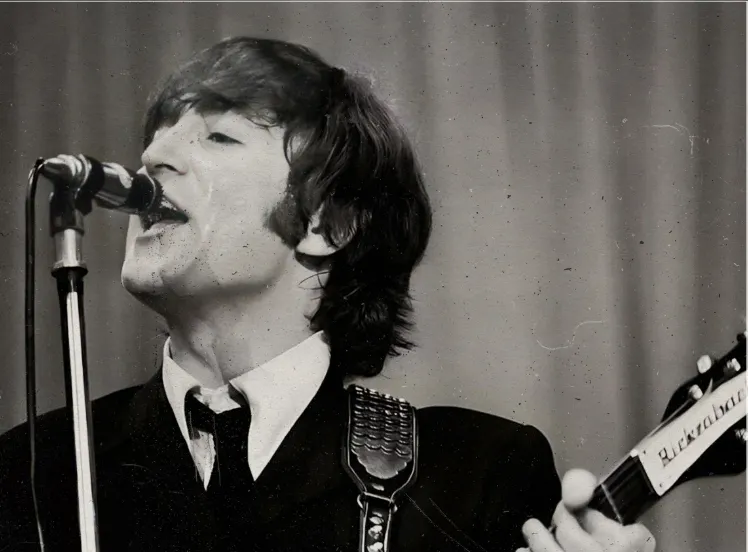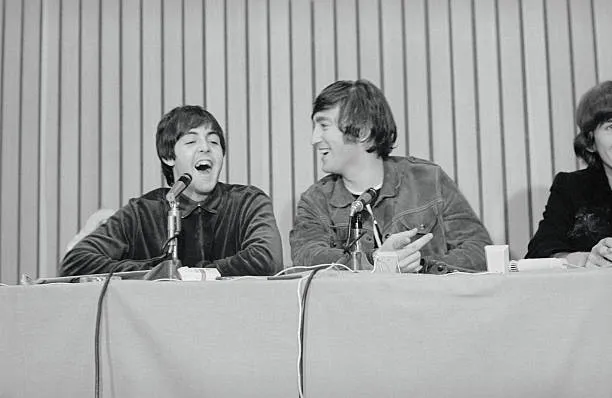John Lennon, one of the most influential musicians of the 20th century, is best known as a founding member of The Beatles and for his solo career that produced iconic songs like "Imagine." While his musical talent and vision for peace are celebrated worldwide, Lennon’s life was filled with unique and sometimes surprising elements. Here are some fun and intriguing facts about John Lennon that reveal the complexity of his character and the journey that shaped his legacy.
He Was Raised by His Aunt, Who Discouraged Him From Pursuing Music

Though John Lennon’s name is synonymous with rock 'n' roll, his early life didn’t seem destined for musical greatness. Born in Liverpool in 1940, Lennon faced a tumultuous childhood. His father was absent, and his mother, Julia, struggled to care for him. As a result, Lennon was raised by his strict Aunt Mimi. While Julia remained a positive influence on his love for music, Aunt Mimi disapproved of his musical ambitions.
Aunt Mimi famously told Lennon, “The guitar’s all very well, John, but you’ll never make a living out of it.” Despite her discouragement, Lennon continued to pursue his passion, and Mimi’s words are now an ironic footnote to one of the most successful musical careers in history.
Lennon’s “Teddy Boy” Antics Got Him Kicked Out of Art School

Before becoming a global superstar, John Lennon was part of the “Teddy Boy” subculture in 1950s Britain, known for its rebellious attitude and distinct fashion. Lennon’s behavior during this time was often mischievous, bordering on delinquent. His antics, combined with his lack of interest in formal education, got him expelled from Liverpool College of Art, where he had been studying.
Lennon spent much of his time in art school doodling caricatures of his classmates and professors, disrupting lessons, and prioritizing music over academics. His rebellious nature, while problematic in school, later became a defining feature of his persona as a rock star.
Lennon Had a Violent Streak and Almost Beat His Close Friend to Death

While John Lennon is remembered for his messages of peace and love, he had a darker side. In his younger years, Lennon was known to have a violent temper, particularly in his teenage and early adult life. One of the most disturbing incidents involved his friend Stuart Sutcliffe, the original bassist for The Beatles. During an argument, Lennon reportedly beat Sutcliffe so severely that it nearly resulted in Sutcliffe’s death.
Lennon later admitted to struggling with his violent impulses, acknowledging that his behavior was often rooted in insecurity and emotional turmoil. Over time, he worked to address these issues, particularly after his relationship with Yoko Ono and his commitment to peace advocacy.
Lennon Hated the Sound of His Own Voice and Was Deeply Dissatisfied With the Beatles' Records

Despite being one of the most celebrated voices in music, John Lennon was famously critical of his own singing. He often expressed dissatisfaction with the way his voice sounded on The Beatles' records, which may surprise fans given the iconic status of so many of their songs. Lennon would frequently ask the band's producers to double-track his vocals or add effects to alter his voice, feeling that it lacked the quality he envisioned.
Lennon’s perfectionism also extended to the overall production of The Beatles' albums. In various interviews, he voiced frustration over how some of their records turned out, particularly in terms of production choices made by their producer, George Martin. Despite the global success and timeless appeal of The Beatles' music, Lennon’s dissatisfaction underscores the complex relationship he had with his work.
Conclusion: A Complicated Icon

John Lennon’s life was full of contradictions, from his troubled youth to his role as an advocate for peace. His journey from a rebellious teenager to an introspective artist shows that, like many creative geniuses, he struggled with personal demons while striving to use his platform for positive change. The fun facts about Lennon—whether it’s his aunt’s dismissal of his musical dreams or his dissatisfaction with his own voice—add depth to our understanding of him as not just a legendary musician but a deeply human figure.



